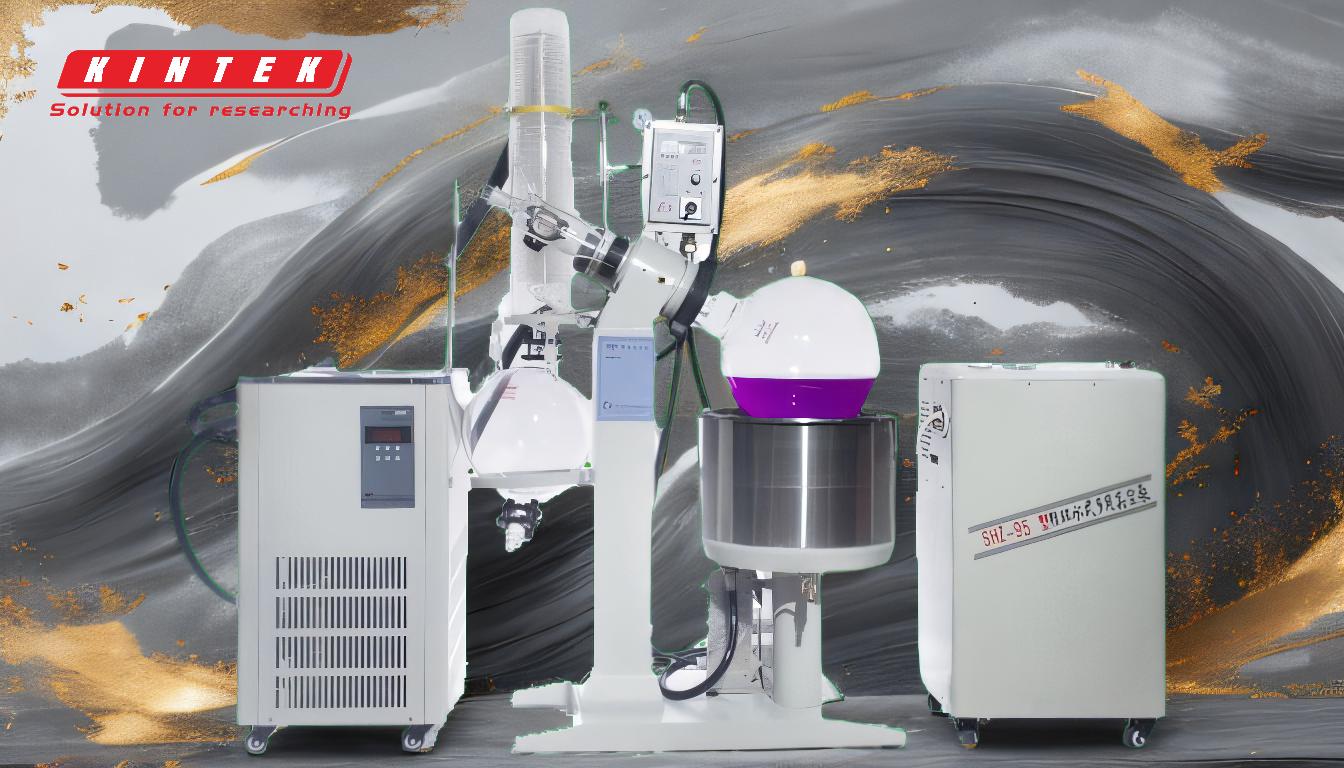Distillation under reduced pressure, also known as vacuum distillation, is a technique used to separate and purify substances that are sensitive to high temperatures. By lowering the pressure, the boiling points of these substances are reduced, allowing them to evaporate at lower temperatures. This method is particularly useful for heat-sensitive materials, such as certain vitamins, oils, and plant extracts, as well as for removing solvent residues in chemical products. It is widely applied in industries like food, medicine, cosmetics, and fine chemicals, where preserving the integrity of the material is crucial. The process also minimizes product loss and enhances separation efficiency, making it a valuable tool in both laboratory and industrial settings.
Key Points Explained:

-
Lowering Boiling Points:
- Distillation under reduced pressure lowers the boiling points of substances, allowing them to evaporate at lower temperatures. This is particularly beneficial for heat-sensitive materials that might decompose or degrade at higher temperatures.
- Example: In the production of certain vitamins or plant extracts, maintaining a lower temperature ensures that the active compounds remain intact and effective.
-
Preservation of Heat-Sensitive Substances:
- Heat-sensitive substances, such as certain vitamins, oils, and plant extracts, can be damaged or altered by high temperatures. Vacuum distillation allows these materials to be processed without exposing them to excessive heat.
- Example: In the pharmaceutical industry, vacuum distillation is used to purify heat-sensitive drugs, ensuring that their therapeutic properties are preserved.
-
Removal of Solvent Residues:
- Vacuum distillation is effective in removing residual solvents from chemical products. This is crucial in industries like food, medicine, and cosmetics, where even trace amounts of solvents can be harmful or undesirable.
- Example: In the production of cosmetics, vacuum distillation is used to ensure that no harmful solvents remain in the final product, making it safe for consumer use.
-
Efficiency and Product Yield:
- By reducing the pressure, vacuum distillation minimizes the loss of product that can occur due to adherence to the inner surfaces of the distillation apparatus. This is particularly important when dealing with expensive or rare materials.
- Example: In the production of fine chemicals, where even small losses can be costly, vacuum distillation helps maximize yield and reduce waste.
-
Applications in Various Industries:
- Vacuum distillation is widely used across multiple industries, including food, medicine, fine chemicals, and cosmetics. It is employed for tasks such as distillation and concentration of natural products, decolorization, deodorization, and preparation of high-boiling process materials.
- Example: In the food industry, vacuum distillation is used to concentrate flavors and essential oils without degrading their quality.
-
Advantages Over Traditional Distillation:
- Traditional distillation methods may require higher temperatures, which can be detrimental to heat-sensitive materials. Vacuum distillation offers a more controlled and gentle approach, preserving the integrity of the substances being processed.
- Example: In the production of electronic materials, where precise control over temperature is essential, vacuum distillation ensures that the materials are not exposed to conditions that could alter their properties.
-
Reduction of Azeotrope Formation:
- Vacuum distillation can help avoid the formation of azeotropes, which are mixtures that boil at a constant temperature and cannot be easily separated by simple distillation. This is particularly useful when separating complex mixtures.
- Example: In the chemical industry, vacuum distillation is used to separate components of a mixture that would otherwise form an azeotrope, allowing for more efficient purification.
-
Environmental and Safety Benefits:
- By operating at lower temperatures, vacuum distillation reduces the risk of thermal degradation and the release of harmful by-products. This makes the process safer and more environmentally friendly.
- Example: In the production of industrial chemicals, vacuum distillation helps minimize the release of volatile organic compounds (VOCs), contributing to a safer working environment and reduced environmental impact.
In summary, distillation under reduced pressure is a versatile and essential technique for the separation and purification of heat-sensitive and high-boiling-point materials. Its ability to operate at lower temperatures, preserve the integrity of substances, and enhance efficiency makes it invaluable across a wide range of industries.
Summary Table:
| Key Benefits | Applications |
|---|---|
| Lower Boiling Points | Separates heat-sensitive materials like vitamins, oils, and plant extracts. |
| Preserves Heat-Sensitive Compounds | Used in pharmaceuticals to maintain therapeutic properties. |
| Removes Solvent Residues | Ensures safe cosmetic and food products by eliminating harmful solvents. |
| Improves Efficiency and Yield | Maximizes yield of fine chemicals and reduces waste. |
| Wide Industrial Use | Applied in food, medicine, cosmetics, and fine chemicals for various processes. |
| Environmental and Safety Benefits | Reduces VOC emissions and thermal degradation risks. |
Discover how vacuum distillation can optimize your processes—contact our experts today!










